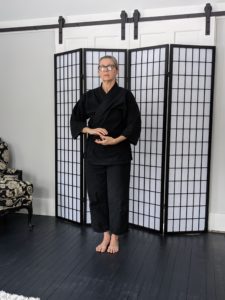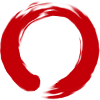QIGONG & CHINESE MEDICINE
Qigong (“chee gung”) is an ancient and important part of Chinese medicine. It is a gentle form of self-healing that combines movement, breath, and visualization to balance body, mind and spirit.
Qigong is about the cultivation of qi (the vibration and resonance of life) by strengthening attention and intention through relaxed, gentle, meditative movement. Literally translated, qigong is “energy cultivation.” While not a martial art on its own, qigong includes principles core to the practice of the martial arts and central to the art of life, as well.
Qigong can increase your energy, and heal or prevent many common illnesses. It is especially effective in reducing stress, strengthening the immune system, improving mental focus, supporting a healthy sleep cycle, deepening a sense of inner peace.
To schedule private qigong instruction:
Call or text Heart of Zen at 231-386-7616 or email michelle.mushin@gmail.com.

Chinese medicine is one of the oldest existing continuously practiced medical systems in the world, with over 3,000 years of history. This long and well-documented history is one of compassionate and successful treatment for a wide variety of conditions. As a complete and coherent system of health care, Chinese medicine’s primary goal is to create wholeness and harmony within a person by strengthening and supporting the body’s ability to heal.
The language of Chinese medicine includes a deep and rich understanding of the concept of qi and how it moves and is experienced in our lives. Qi is the expression of life. Qi is the energy of the body. As the quality of qi changes, the symptoms associated with a lack of flow will gradually improve.
Qi: In Chinese medicine, qi (ki, chi) is the underlying vibration and resonance of life, its vital energy.
Channels: Qi resonates within the body through a matrix of channels sometimes known as meridians. This channel network governs organs, tissues, emotional and mental faculties, and cellular activities by regulating and balancing the flow of qi.

